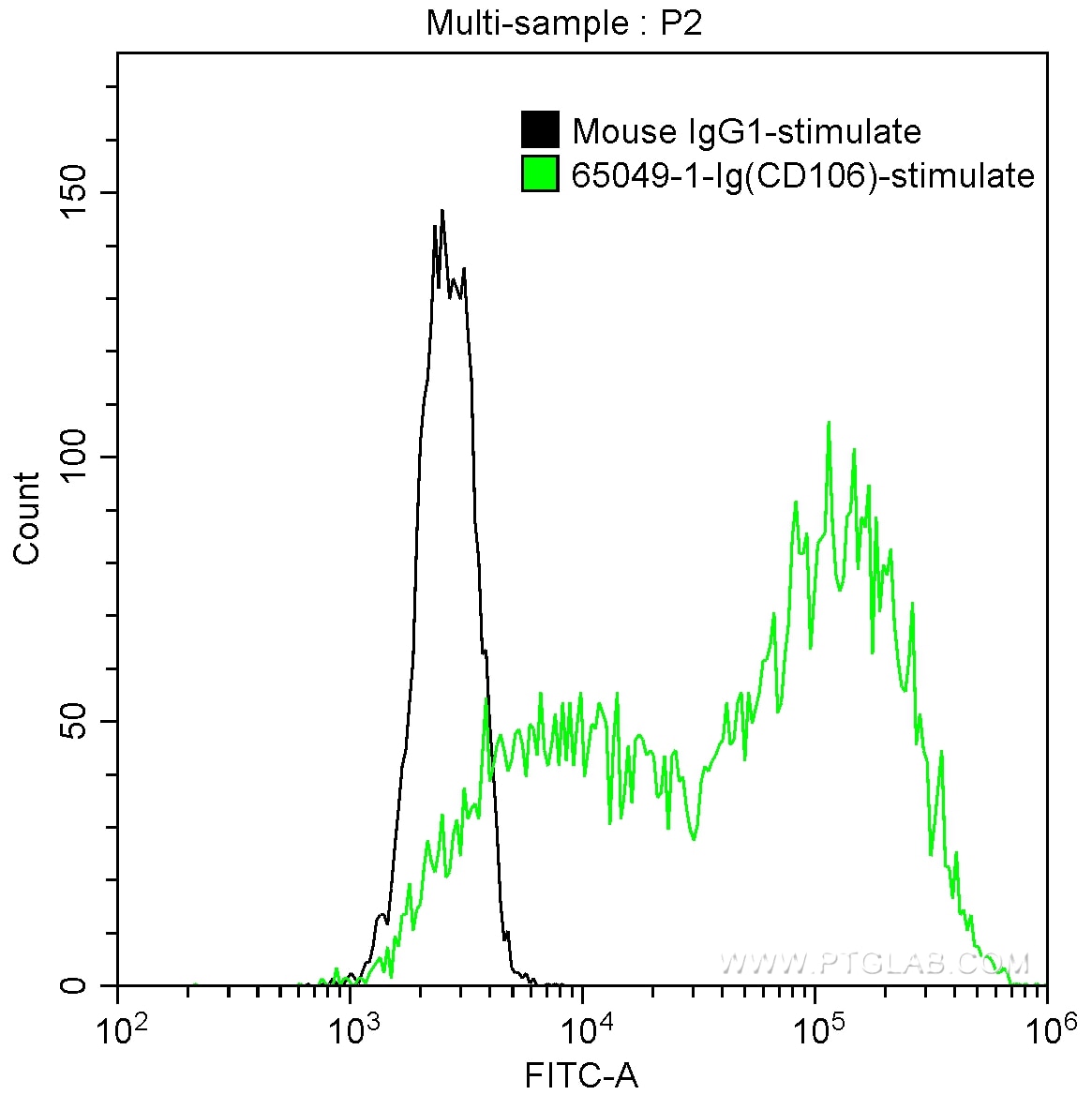Anticorps Monoclonal anti-CD106
CD106 Monoclonal Antibody for FC
Hôte / Isotype
Mouse / IgG1, kappa
Réactivité testée
Humain
Applications
FC
Conjugaison
Non conjugué
CloneNo.
1.G11B1
N° de cat : 65049-1-Ig
Synonymes
Galerie de données de validation
Applications testées
| Résultats positifs en cytométrie | cellules HUVEC, |
Dilution recommandée
| Application | Dilution |
|---|---|
| This reagent has been tested for flow cytometric analysis. It is recommended that this reagent should be titrated in each testing system to obtain optimal results. | |
| Sample-dependent, check data in validation data gallery | |
Informations sur le produit
65049-1-Ig cible CD106 dans les applications de FC et montre une réactivité avec des échantillons Humain
| Réactivité | Humain |
| Hôte / Isotype | Mouse / IgG1, kappa |
| Clonalité | Monoclonal |
| Type | Anticorps |
| Immunogène | s/o |
| Nom complet | vascular cell adhesion molecule 1 |
| Masse moléculaire calculée | 739 aa, 81 kDa |
| Numéro d’acquisition GenBank | BC017276 |
| Symbole du gène | VCAM-1 |
| Identification du gène (NCBI) | 7412 |
| Conjugaison | Non conjugué |
| Forme | Liquide |
| Méthode de purification | Purification par affinité |
| Tampon de stockage | Borate buffered saline |
| Conditions de stockage | Store at 2-8°C. Stable for one year after shipment. |
Informations générales
Vascular cell adhesion molecule 1 (VCAM1), also known as CD106, is a 110-kDa transmembrane glycoprotein belonging to the immunoglobulin gene superfamily. VCAM1 is expressed by cytokine-activated endothelium, interacts with integrin VLA4 (α4β1) present on the surface of leukocytes, and mediates both adhesion and signal transduction. It is also expressed either constitutively or inducibly in a variety of other cell types, including vascular smooth muscle cells, differentiating skeletal muscle cells, renal and neural epithelial cells, macrophages (Kupffer cells), dendritic cells, and bone marrow stromal cells (PMID: 7507076, 11359843).
Protocole
| Product Specific Protocols | |
|---|---|
| FC protocol for CD106 antibody 65049-1-Ig | Download protocol |
| Standard Protocols | |
|---|---|
| Click here to view our Standard Protocols |


